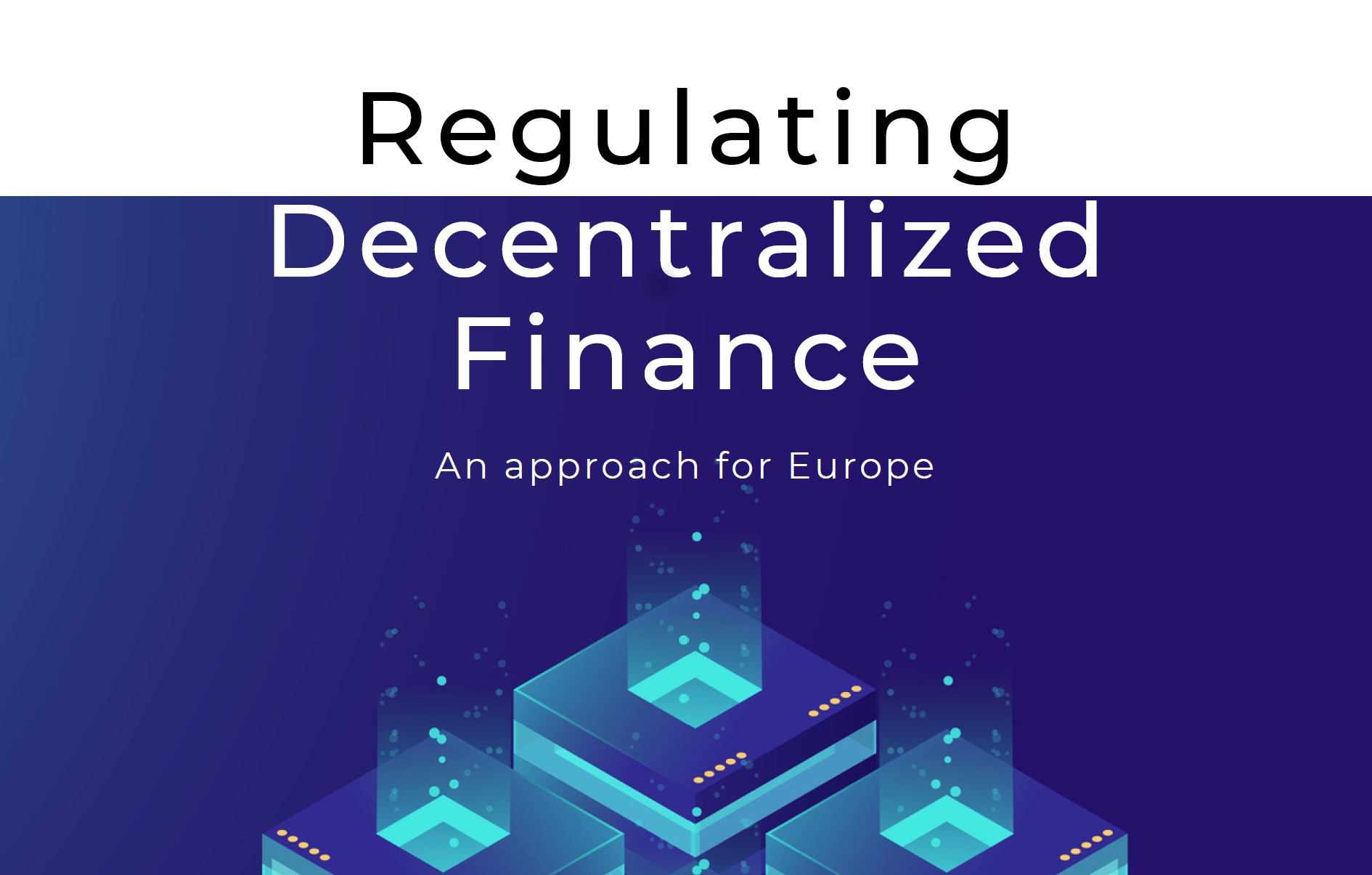A blogpost by Erwin Voloder, Senior Policy Fellow EBA
Decentralized finance is one of those corners of the blockchain universe which holds immense potential. The European Commission’s Directorate General for Financial Stability Financial Services and Capital Markets Union (FISMA) recently published a consultation paper on decentralized finance with recommendations for future regulation of DeFi in Europe. The European Blockchain Association together with Unstoppable Finance and Dentons has published a reply to the Commission’s consultation paper.
👉 Download “Regulating Decentralized Finance – an approach for Europe” here
📣 Join us for a high level discussion on the future of decentralized finance in Europe with experts across the public and private sector who will give their unique insights on this equally unique and timely topic. The event will be a hybrid event with a live-stream available for those who cannot make it to Frankfurt. Register here.
The potential of decentralized finance
The composability of financial products paired with cutting edge smart contracts promises to unleash many benefits to consumers and society. It is a fast, innovative space that has also drawn lots of attention from the regulatory community, especially in light of the failures of centralized crypto lending platforms in 2022. The commingling of funds, lack of investor protection and rehypothecation of assets have been hallmarks of the collapses of the past year, capped off with the stunning failure of FTX and the aftermath that came with it.
Here at least, DeFi has managed to keep its users’ funds relatively unscathed due to the inbuilt nature of peer-to-peer lending, and the disintermediation of third parties in financial transactions. However, in order to maintain an upward trajectory, onboard new users and win over new converts, DeFi will eventually have to fall within a regulatory perimeter. The key point is what sort of perimeter, how expansive or restrictive and how accommodate will it be to innovation and the needs of consumers as they mature and develop with what technology makes possible on a long enough time scale. This is the challenge for all regulators globally as they face a wave of disruptive technologies which are converging on every nook and cranny of the traditional order. From financial markets, to supply chains, healthcare and agribusiness, technological change is challenging the status quo.
Beyond “DeFi theatre” –reclaiming financial agency and improving financial inclusion
A recent view shared by the Federal Reserve Bank of Dallas has opined that DeFi could be a viable alternative to the traditional financial system due to its composability, speed of execution and lower transaction costs. The Organisation for Economic Cooperation and Development (OECD) has raised similar claims in a paper titled ‘Why Decentralized Finance Matters.’ However both these institutions and others have highlighted the ongoing challenges of pseudonymity in decentralized markets preventing things like credit screening at scale, or the Bank for International Settlements argument that DeFi suffers from a ‘decentralisation illusion’ and instead what we see is simply ‘DeFi theatre.’ Some of these are valid points but do not negate the fact that financial services optimized and executed through the use of smart contracts have revolutionized the way we perceive what a market economy can look like. More importantly it points to a way for people to reclaim financial agency and widen the tent of financial inclusion.
Overcoming information asymmetries in decentralized markets
The European Commission’s Directorate General for Financial Stability Financial Services and Capital Markets Union (FISMA) recently published a consultation paper on decentralized finance. It looks at the information asymmetries of decentralized markets and provides a set of policy recommendations for future regulation of DeFi in Europe. The European Blockchain Association together with Unstoppable Finance and Dentons has published a reply to the Commission’s consultation paper. Our approach outlines a model system architecture that overcomes the information asymmetries in decentralized markets through the implementation of Decentralized Autonomous Organization (DAO) infrastructure, SoulBound Tokens (SBTs) and national level APIs connected through EU-level oracle frameworks.
We have also detailed a set of high-level policy outlines that combine the comparative advantages of the private and public sector to create a European approach to DeFi regulation that both protects consumers and fosters innovation. This paper is also a call to the industry. We must be more involved in the regulatory discussions that will one day determine the environment blockchain and decentralized markets will operate in. It is our hope that this serves as the basis for a fruitful and inclusive discussion on what the future of blockchain innovation in Europe could look like when all sides take an active role in determining the outcome.

